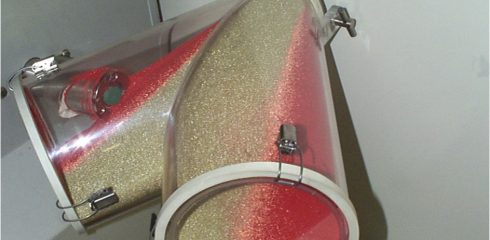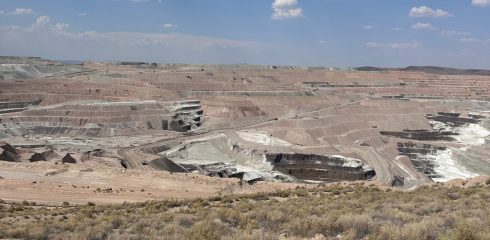
Handling of moist bulk solids when temperatures fall below 0°C is a challenge for operations; flow problems will occur. Freezing related flow problems are due to temperature differences between the bulk solid and contact surfaces. The following describe four possible scenarios:
Bulk solid and surfaces in contact with the bulk solid are below -5°C
The bulk solid will remain frozen and the design of the handling system can be based on the flow properties of the bulk solid under frozen conditions.
Bulk solid and surfaces in contact with the bulk solid are between -5 and 0°C
As a bulk solid flows through a storage container, the particles are subjected to large and rapidly changing compressive and shear forces. These can cause the ice on the particles surfaces to melt. As the bulk solid flows further, contact pressure drops again and the water refreezes. This can bind particles together to create very large frozen lumps and arches.
Along flow boundaries (such as in funnel-flow channels), particle impact and sliding can melt the ice in the boundary’s surface; the water then fills the voids and refreezes. The channel strengthens and grows, slowly constricting the flow.
Bulk solid above 0°C, and surfaces in contact with the bulk solid below 0°C
Fine moist particles can freeze and adhere to surfaces below 0°C. If conditions persist, the buildup can continue, reducing storage capacity of bins and choking off flow in chutes. When temperatures rise again, frozen lumps can break loose and block the outlets.
Bulk solid below 0°C, and surfaces in contact with the bulk solid above 0°C
Often bulk solids reclaimed from outdoor stockpiles will have ice and snow mixed in. When the ice or snow contacts the walls of a warm hopper it may melt. This water enters the voids of the bulk solid and refreezes creating large frozen lumps, or the water may drain down the walls to the outlet.





